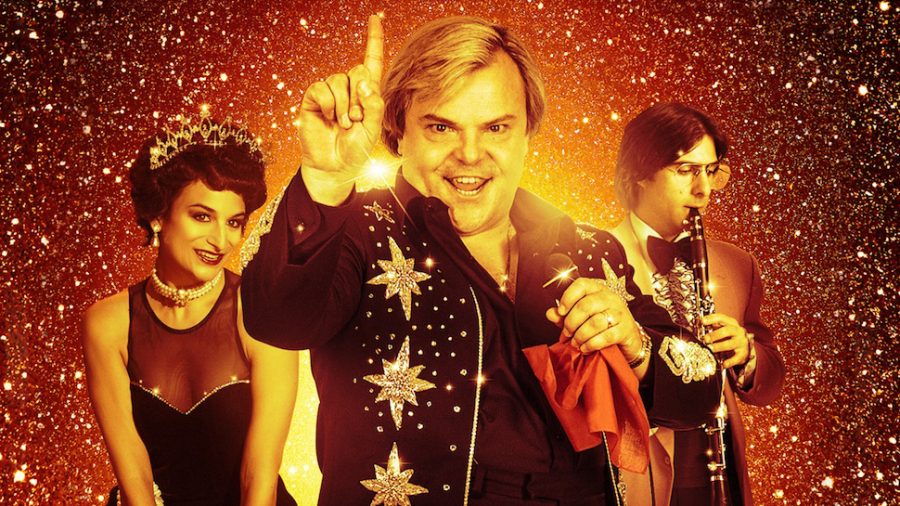Polka music is often perceived as vibrant, bouncy and wholesome. Jan “Lewan” Lewandowski, a famous polka musician, lived a life that only embodied the vibrant and bouncy aspects of his music. Hardly a wholesome figure, Lewan’s hunger for stardom was matched only by his corruption.
Based on real events, “The Polka King” follows Lewan as he climbs his way to success, running a Ponzi scheme to afford the hefty costs of touring. Led by strong performances from Jack Black, Jenny Slate and Jacki Weaver, the film weaves its way through crucial moments in Lewan’s life, from his humble beginnings to his years behind bars. It’s a love-him-or-hate-him story that’s as funny as it is surprising, complete with hilarious twists and turns that will convince the sensible viewer to weigh fact and fiction.
Like the music that inspired it, “The Polka King” is buoyant and bursting with energy. The film’s tempo accelerates to the tune of Lewan’s success, packing a punch — even in slower, more intimate moments — to keep viewers glued to the screen. Editor Catherine Haight leaves no room for waste in her assembly of the film — every moment is integral, cueing us into the emotional lives of our antihero and those who catapult him to polka stardom.
All of this, however, is aided by the film’s slew of knockout performances — Jack Black’s being the most important among them. The wide-eyed theatricality that has made him a comedic tour de force is as present as ever, used to retain interest for the duration of the film. Even scenes that carry viewers through bland plot points burst with Jack Black’s charisma and charm. In keeping with his reputation, he envelops the screen with his energy and becomes the film’s guiding force.
Jenny Slate delivers a powerful counter to Black’s performance, immersing viewers in Marla Lewan’s struggle to live in her husband’s shadow. Her inability to accept her status as “Mrs. Jan Lewan” propels a B plot that’s arguably more engaging than the film’s central conflict, inviting into the film themes of sexism, insecurity and relentless self-loathing. A pageant scene in the film’s second act, courtesy of Marla’s decision to rebuild her image, makes for a charming but clever critique of the American dream that’s elevated by Slate’s performance.
There are particular elements of the film that have room for improvement, including its reliance on underdeveloped subplots. Jan Lewan’s relationship with his son, David (Robert Capron), rarely touches the surface — if ever. The point at which the value of their relationship takes center stage falls flat, and the events that follow seem convenient rather than cathartic. In the same vein, a secret relationship that blossoms between Barb (Jacki Weaver) and Jan’s best friend, Mickey (Jason Schwartzman), is irrelevant to the central plot, further hampering the film’s structure.
The result, though flawed, manages to entertain, and viewers will certainly glean plenty from its arsenal of scene-stealing performances. The extent to which director Maya Forbes pays tribute to Jan Lewan is subjective, and would perhaps be best assessed by Lewan himself, but the biopic certainly carries the charisma, charm and spirit of a polka king vying for the throne — and that alone is quite the honor.
Score: 3.5/5





















